Clinic-to-Community Collaborations in an Evolving Health Care Landscape
Due to the changing healthcare landscape and growing recognition of the role that community-based organizations can play in addressing social needs, there is growing collaboration between healthcare provider organizations and social service agencies/community-based organizations. Join us for an educational meeting that will highlight examples of clinic-to-community collaborations and how these collaborations are evolving in response to, or in alignment with, the changing health care landscape.
Time, Location & Parking
8:00 am – 12:30 pm
AMITA Health Saints Mary and Elizabeth Medical Center
SME Room, 3rd Floor
2233 West Division Street, Chicago, Illinois 60622
Parking Free parking available across the street from AMITA Health Saints Mary & Elizabeth Medical Center. Validate coupon at front desk.
Registration Fee
Members – $35
Non-Members – $45
Full-time Students – $15
Schedule
8:00 am – 8:30 am – Registration and Continental Breakfast
8:30 am – Welcome & Knowledge Share – Attendees are invited to share information about what is happening at their respective organizations. You may announce upcoming events, ask for assistance with projects, announce job openings, etc.
8:45 am – 9:45 am – Emerging Practices in Clinic-to-Community Partnerships PRESENTATION
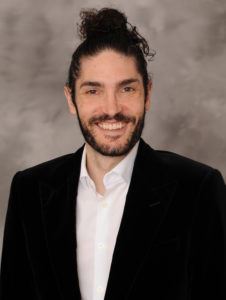 Presenter: Marc Rosen, MPH, Director of Healthcare Integration and Translation; YMCA of the USA
Presenter: Marc Rosen, MPH, Director of Healthcare Integration and Translation; YMCA of the USA
Description: Health care is rapidly evolving. The shift towards value-based payment requires healthcare providers to develop population-based approaches. Successful population health management requires risk-stratification of the target population and linkage of the population to interventions and programs based on risk, as well as an increased understanding of the impact lifestyle choices, health-related social needs, and social determinants on health have on health outcomes. Often, community-based organizations (CBOs) are positioned to serve as an extension of the care continuum because they provide desired access points to upstream services that address the non-clinical factors that impact approximately 80% of health outcomes. Despite the clear role of community-based organizations in addressing lifestyle change, many healthcare providers fail to enter into sustainable partnerships with organizations in the community. The failure of the traditional healthcare market to embrace the role of CBOs in addressing social factors impacting health limits their ability to achieve improved Quadruple Aim measures. YMCA of the USA, with funding from the Robert Wood Johnson Foundation, conducted a two-year project to provide technical assistance to local Ys that partner with healthcare providers to demonstrate best practices of medical-community partnerships to address the health of a target population. Based on their experience supporting partnership development throughout the country, YMCA of the USA’s Director of Healthcare Integration and Translation, Marc Rosen, will present best practice models of clinical-community partnerships.
Objectives:
1) Describe the evolving healthcare landscape
2) List common challenges to establishing sustainable clinical-community partnerships
3) Describe the role that best practice models of clinical-community partnerships can fulfill in achieving population health goals
9:45 am – 10:00 am – Networking Break | Visit Exhibitor Booths
10:00 am – 11 am – Partnerships and collaborations that lead to better patient health, and a healthier community
Chicago Asthma Talk WON
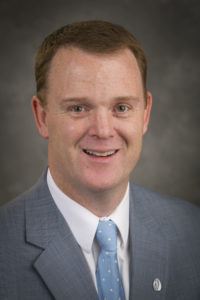 Presenter: Chris Rasch, Director of Government and Community Relationships; Sixteenth Street Community Health Centers
Presenter: Chris Rasch, Director of Government and Community Relationships; Sixteenth Street Community Health Centers
Chris Mambu Rasch serves as Director of Government and Community Relations for Sixteenth Community Health Centers. Prior to this role, Mr. Rasch served in leadership roles with the Wisconsin Medical Society including Vice President of Advocacy and Member Relations, and Director of State and Federal Relations. Mr. Rasch graduated from the University of Wisconsin, Madison in 1999 where he completed dual degrees in Political Science and History. He currently serves on the Milwaukee Health Care Partnership Alliance Committee among other local health committees.
Description: Sixteenth Street Community Health Centers in Milwaukee and Waukesha Wisconsin cares for over 40,000 patients every year. Our patients have significant health challenges, but through partnerships and collaborations Sixteenth Street has been able to improve the health of our community and patients. Strategic partnerships have led to lower Emergency Department use, expanded access to care, improved green infrastructure, and more.
Objectives:
1) Attendees will learn about Sixteenth Street’s partnerships with the Milwaukee Health Care Partnership, public and private schools, Milwaukee Metropolitan Sewerage District, and others.
2) Attendees will have a great understanding regarding the power of partnering to improve the health of the community.
3) Attendees will also learn about the resources, infrastructure, and buy-in needed to make those partnerships successful.
11:00 am – 11:15 am – Networking Break | Visit Exhibitor Booths & Membership Table
11:15 am – 12:15 pm – Partnering with Community: Perspectives from Hospital, Health Care Provider, and Community Representatives
Description: Hospital and community-based organization representatives from Chicago will convene to discuss their lessons learned from previous experiencing establishing clinical-to-community collaborations. In particular, they will share how their hospital’s approach to conducting its Community Health Needs Assessments process has evolved over time and growing trends around using a multi-stakeholder approach to conducting the process.
Objectives:
1) Understand trends in hospital-community collaborations
2) Understand the business and mission-based factors influencing hospital-community collaborations
3) Increase awareness of CHNA-driven initiatives involving hospital and community collaboration in Chicago
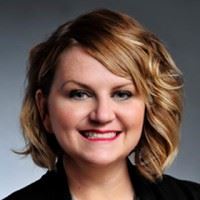 Moderator: Sarah Rittner, MA, Founder & CEO; SASU Project Management
Moderator: Sarah Rittner, MA, Founder & CEO; SASU Project Management
Sarah’s work comprises nearly two decades of project management experience, concentrating on health equity and community-engaged research at the local, state, and federal levels. She has overseen more than 55 research projects in her work with vulnerable populations, many of which have been related to health disparities, social determinants of health, health information technology, and community-based participatory research. She is a graduate of Michigan State University (MA and BA), specializing in medical sociology and health communication. Sarah is a member of the Robert H. Lurie Comprehensive Cancer Center Health Disparities and Special Populations Advisory Committee and Chicago Department of Public Health Institutional Review Board. She is also a Board of Director for the Chicago Asthma Consortium and 15-year volunteer with Gilda’s Club Chicago.
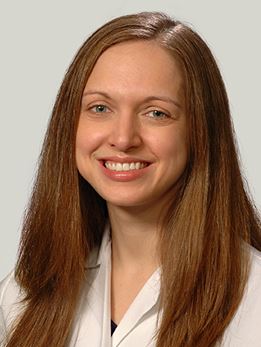 Panelist: Anna Volerman, MD, Assistant Professor of Medicine and Pediatrics; University of Chicago Medicine
Panelist: Anna Volerman, MD, Assistant Professor of Medicine and Pediatrics; University of Chicago Medicine
Anna Volerman, MD is an Assistant Professor of Medicine and Pediatrics at University of Chicago Medicine. She is a primary care physician for both children and adults, as well as an advocate for children and families in both the clinic and community settings. She received her Bachelors degree from Northwestern University and graduated summa cum laude from Boston University School of Medicine. She completed her Internal Medicine / Pediatrics residency training at Brigham and Women’s Hospital / Boston Children’s Hospital. Since joining University of Chicago, she has developed and led innovative programs in clinical and community settings to improve health care delivery and optimize care. Her work focuses on reducing health disparities for children, including in asthma and obesity, with a focus on examining and improving systems of care in collaboration with academic and community partners.
 Panelist: Cody McSellers-McCray, MPH, CHES, Executive Director, Community Health; AMITA Health
Panelist: Cody McSellers-McCray, MPH, CHES, Executive Director, Community Health; AMITA Health
Cody McSellers-McCray, MPH, CHES, is a mission-driven, results-oriented public health professional. Her career has focused on identifying solutions to address the root causes of poor health and provide a better quality of life for under-served populations. Currently, she serves as the Executive Director, Community Health for AMITA Health. In this capacity, she provides administrative leadership and strategic direction for the operational aspects of the system’s community health initiatives and strategies, towards improving health equity. Previously, she served as Regional Business Development Executive (Midwest) for Health Leads, a national nonprofit, equipping leading hospital and health systems with the ability to address the impact of social determinants of health for their patient populations. In this role, Cody was responsible for growing and expanding revenue generating strategic partnerships with hospital and health system leaders. Through a systems-led approach to address health-related social needs, her work resulted in a reduction of healthcare costs and state and community level policy changes. Prior to this role, Cody served as the Executive Director for Health Leads in Chicago. She has received several awards, most recently nominated and selected as a member of the 2019 Class of Tomorrow’s Leaders by the Catholic Health Association of United States. She has received recognition for her leadership as a graduate of numerous leadership development programs, such as the Women’s Executive Leadership Program at the Impact Center in Washington DC; Leadership Greater Chicago Class of 2012 and as an inductee in Delta Omega Honorary Society in Public Health. She serves as the Chair of Advocate Bethany Community Health Fund (Advocate Aurora Health Foundation) Board of Directors. She also serves on the Board of Directors for New Moms, a nonprofit transforming lives and creating strong families. Cody has a B.S. in Kinesiology/Sports Medicine and Master of Public Health degree from Northern Illinois University. She also have a certificate in Nonprofit Management from North Park University.
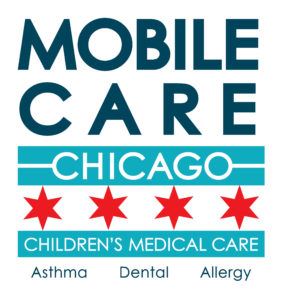 Panelist: Matt Siemer, Executive Director; Mobile Care Chicago
Panelist: Matt Siemer, Executive Director; Mobile Care Chicago
Matt Siemer is the Executive Director of Mobile Care Chicago. For 20 years, Mobile Care has used Asthma Vans to provide allergy and asthma care to over 13,000 children at no cost. Through partnerships with local schools, the organization also surveys 15,000 children annually, attempting to identify children who have asthma but lack a diagnosis. For asthma patients who stay with their Asthma Van for one year or more, 95% will never go back to an ER for asthma. During Matt’s tenure, Mobile Care’s programs have won local and national distinctions including most recently the American Lung Association in Greater Chicago’s 2016 Impact Award, the 2017 Premier Cares Award, the 2018 CHEST Community Service Award, and the 2019 EPA National Environmental Leadership Award. Matt holds a BS in Philosophy & Literature from Truman State University and an MA in Philosophy from Duke University.
 Panelist: Stephen B. Brown, MSW, LCSW, Director of Preventive Emergency Medicine; University of Illinois Hospital and Health Sciences System
Panelist: Stephen B. Brown, MSW, LCSW, Director of Preventive Emergency Medicine; University of Illinois Hospital and Health Sciences System
Stephen Brown, MSW LCSW, is a faculty member and Director of Preventive Emergency Medicine in the Department of Emergency Medicine at the University of Illinois Hospital and Health Sciences System (UI Health).
He earned his first degree in business marketing in 1984 from Northern Illinois University. During the next 13 years, he worked at Motorola’s Computer Systems Division as systems engineer, account executive and product marketing manager. In 1998 he went on sabbatical to complete a second undergraduate degree in psychology at Northwestern University, graduating summa cum laude, and a master of social work at Loyola University.
In 2005 he was hired to be a social worker in the ER at the University of Chicago, then was promoted in 2008 as the Director of Preventive Emergency Medicine. Stephen came to UI Health’s Department of Emergency Medicine in 2011 to establish a program to identify and manage healthcare super-utilizers. He is the Program Director for Better Health Through Housing, a demonstration pilot that is raising awareness in Chicago for the need to recognize homelessness as a dangerous social condition and to scale the nationally-validated Housing First model. The program transitions patients who are chronically homeless into permanent supportive housing.
His previous tech experience enables him to work with health IT, city, state and federal officials to break down data silos, and in doing so empower better data-driven public policy. He is currently working on a planning grant that will develop an open source platform for cross-sector data exchange among healthcare, human service, first responder systems, criminal justice, and city and state data silos, and the development of social algorithms using credit, public health and healthcare data that indicate elevated risk for poor health outcomes.
He is the co-author of a recent Health Affairs article entitled “Mr. G and the Revolving Door: Breaking the Readmission Cycle at a Safety Net Hospital”.
Join the Professional Development Committee
The Chicago Asthma Consortium plans to host 3 Kick Asthma: Knowledge Forums in 2019.
If you are interested in helping plan the meeting themes and sourcing presenters, please contact Tricia Fusilero at tfusilero@chicagoasthma.org or call 888-268-8334.
If you have questions or suggestions, please do not hesitate to contact Tricia.
